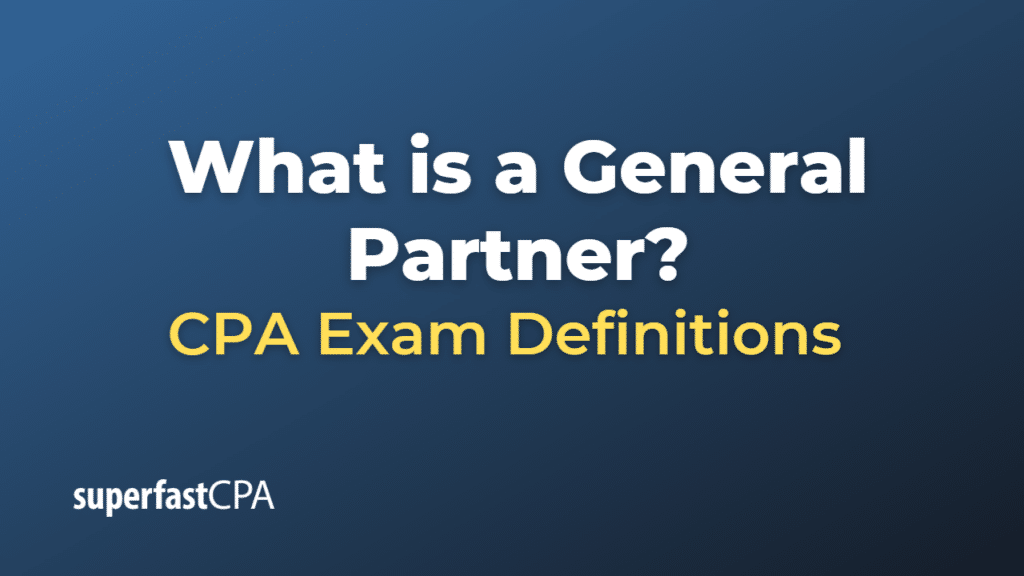General Partner
A general partner is a member of a partnership who has authority to manage the daily operations of the business. They have the ability to make binding decisions for the partnership, and they have unlimited personal liability for the partnership’s debts and obligations.
This is in contrast to a limited partner, who typically contributes capital to the partnership but doesn’t participate in its daily operations or management. A limited partner’s liability is typically limited to the amount of their investment in the partnership.
The rights, responsibilities, and liabilities of general partners are usually defined in a partnership agreement. It’s also worth noting that in a limited partnership, there must be at least one general partner.
Here are some common duties of a general partner:
- Managing daily operations: This includes overseeing employees, making business decisions, and generally ensuring the smooth operation of the business.
- Investing in the partnership: General partners often contribute financially to the partnership, although their contribution might not be as large as that of limited partners.
- Making decisions on behalf of the partnership: As mentioned above, general partners have the authority to make binding decisions on behalf of the partnership.
- Assuming personal liability: If the partnership can’t meet its financial obligations, general partners are personally liable. This means that their personal assets, such as homes or savings accounts, could be used to pay the partnership’s debts.
Being a general partner can offer more control over the partnership and potentially more financial reward if the partnership is successful. However, it also involves more risk due to the personal liability aspect.
Example of a General Partner
Let’s consider an example of a real estate development project.
John and Jane decide to form a partnership to develop and manage a commercial real estate property. They both have experience in real estate, but John has more time to devote to the daily operations and management of the property, while Jane is more interested in contributing capital and doesn’t want to be involved in day-to-day management.
In this case, John could become the general partner. He would be involved in tasks like hiring contractors for the construction, leasing out the commercial spaces once they’re ready, maintaining the property, and dealing with tenants. John has the authority to make decisions regarding these matters without consulting Jane. He is also responsible for the financial obligations of the partnership and his personal assets could be at risk if the partnership cannot pay its debts.
Jane, on the other hand, could become a limited partner. She provides a significant portion of the funds needed for the development project but does not participate in the day-to-day operations or decision-making. Jane’s liability for the partnership’s debts is limited to her initial investment. This means if the partnership goes bankrupt, Jane could lose her investment, but her personal assets would not be used to pay off the partnership’s debts.
In this partnership, John, as the general partner, has more control and a higher risk. Jane, as the limited partner, has less control but also less risk. Both types of partners are integral to the function and success of the partnership.













